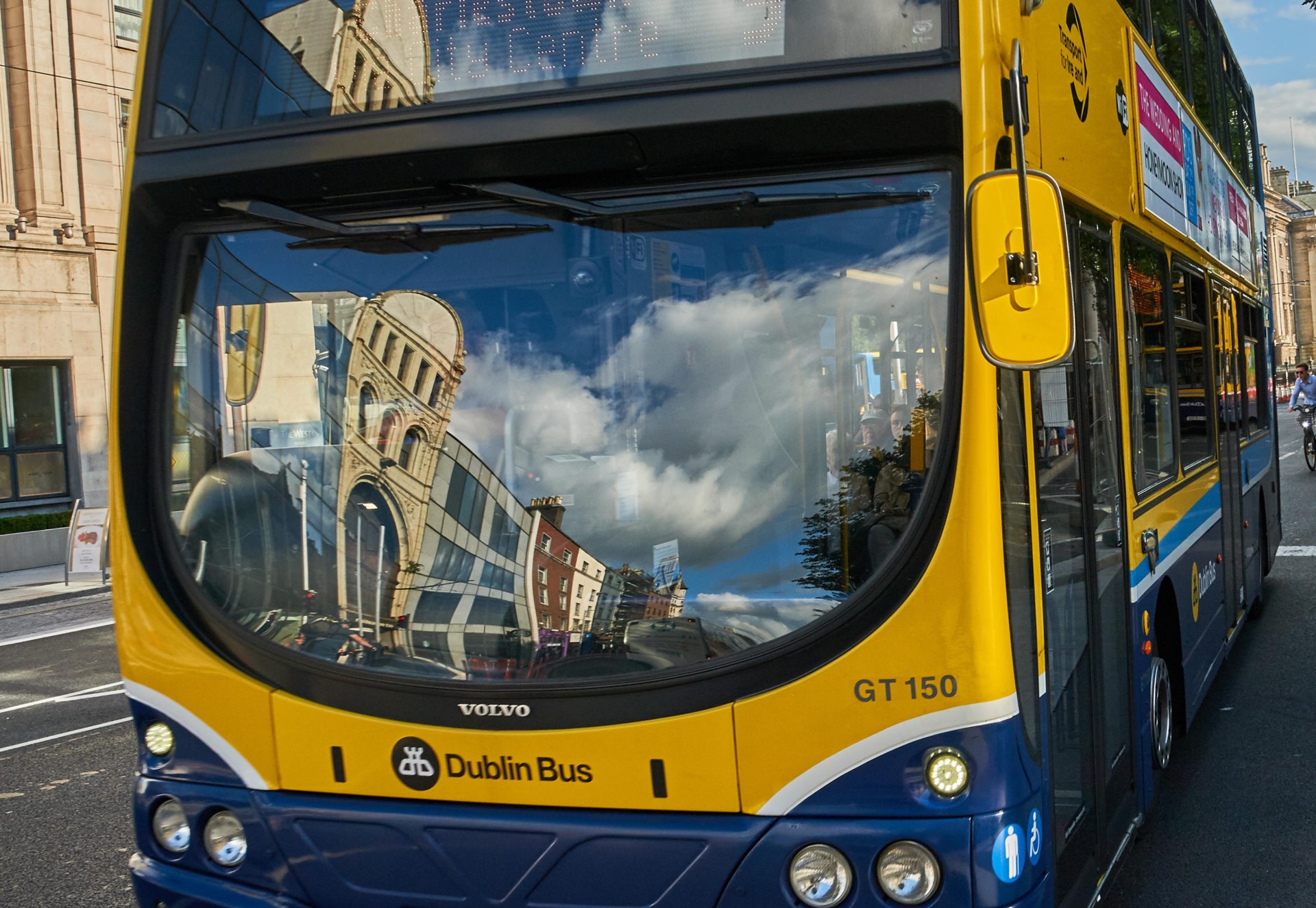There are plans to introduce a single fare structure for public transport across the entire country.
The National Transport Authority (NTA) has published a National Fare Strategy, which will see them calculated on a cost per kilometre basis.
The fare for a bus journey of, say, 20km will be the same whether it takes place in the north-west or south-east.
There is currently no consistency in how public transport fares are decided on around Ireland.
In Dublin, a City Zone is to be introduced which will extend approximately 23km from the city and broadly equates to the existing 90-minute fare zone.
 A Dublin Bus in Dublin city centre. Picture by: Martin Philpott / Alamy Stock Photo
A Dublin Bus in Dublin city centre. Picture by: Martin Philpott / Alamy Stock PhotoA new Outer Dublin Commuter Zone - extending to approximately 50km from Dublin city centre - will also be created.
It will include towns such as Drogheda, Navan, Trim, Enfield, Clane, Prosperous, Newbridge, Kildare, Greystones and Wicklow.
Mark Gleeson from Rail Users Ireland told The Hard Shoulder this would be a fairer system.
"Every route has a different fare structure," he said.
"While it is broadly calculated by distance, the zones they use are not all the same length.
"If you look at the numbers, particularly around places like Kildare and Drogheda, it seems almost as if the fare structure was designed to increase the fare for people who are travelling in from those outer hinterlands of Dublin.
"What's proposed, hopefully, should bring it down to one single fare structure".
'Intolerable and unacceptable'
Mr Gleeson said the new approach should avoid a cliff-edge to fares outside the capital.
"There's this kind of cliff you fall off when you leave the Dublin suburban area, and the fares switch to inter-city even though you're a commuter," he said.
"If you're coming from somewhere like Newbridge to Dublin [it's] €10.85 - whereas the next station up is only €3.
"That's intolerable, it's unacceptable and it's never been explained correctly".
'Simpler to implement'
Mr Gleeson said a similar strategy was published for inter-city fares a decade ago "and little, if any, of that was adopted."
"What's different this time is the NTA actually set-up the fare structure," he said.
"So the transport operators themselves have no say in what the fares are or how they're calculated.
"They receive a cheque at the end of the month - effectively - regardless of what [the] fares are.
"So this should be simpler to implement, and there is huge political and local support to throw away the current system".
The NTA has said it hopes to implement revised fare structures in the Dublin commuter area "as a priority."
It added that fare decisions based on this strategy will be determined and published at "a later date."









